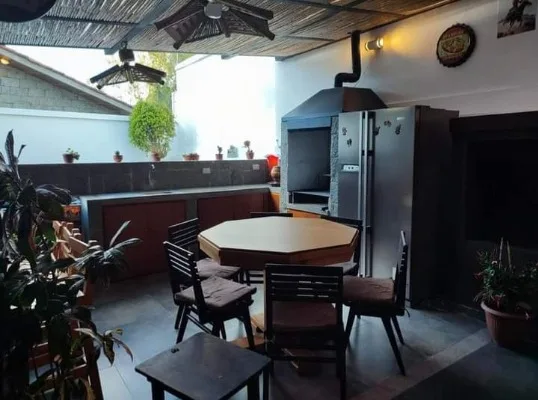Rafael Correa begins second term with big expectations but faces daunting economic and political challenges
President Rafael Correa starts a second term on Monday promising "21st century socialism" for Ecuador, but his clashes with investors may jeopardize trade and deter financing he needs to reverse an oil output slump.
He also faces a drop in popular suppor t, according to two recent polls
t, according to two recent polls
Correa, a former economy minister, was re-elected in April for a four-year term under a new constitution that expanded presidential powers.
The first re-election of a president since democracy was restored 30 years ago is a sign of stability in a nation where three presidents were toppled in the last decade.
But Correa will struggle with falling oil revenues, the mainstay of government's finances, and fallout from a foreign debt default that shut Ecuador out of international capital markets.
He has benefited from constitutional reform that put the central bank under his control, empowered him to redistribute idle farmland and widened his authority over key sectors like mining and oil.
Correa's heavy social spending and frequent outbursts against business elites, who he blames for the OPEC country's sharp divide between rich and poor, have helped consolidate popular support, pollsters say.
But the U.S.-educated economist could now face resistance in Ecuador's legislature where his party managed to cobble together an alliance. That majority may crumble, some analysts say, unless Correa tones down his confrontational style.
Pollsters and analysts say joblessness and other hot-button issues could also erode support as the economy flags. Two polls conducted in July indicate that he begins his second term with 20% to 30% less support than he had 30 months ago. Pollsters say he will find himself under growing popular pressure if the economy remains weak.
"Disappointment is starting to set in," said political consultant Luis Eladio Proano. "People haven't seen him come through on promises like creating jobs, improving education and medical care and build 100,000 houses a year."
An ally of Venezuelan President Hugo Chavez, Correa has already rattled investors by hiking taxes, defaulting on debt and expelling foreign firms over tax or legal wrangles. Like Chavez, he uses the "21st century Socialism" slogan to describe his campaign to bring more equality to Ecuador.
With petroleum Ecuador's chief export, a major challenge will be to lure foreign investment to help reverse a decline in oil output, now at 486,000 barrels per day (bpd). Nearly half is pumped by foreign oil companies, which are parrying government demands they sign contracts under tougher terms.
Last month, the government seized two oil fields operated by French company Perenco's oil blocks in a tax dispute. Perenco extracted 22,000 bpd from Ecuador's Amazon jungle.
After winning re-election, Correa said he would steer Ecuador toward his new brand of socialism by "radicalizing" and "accelerating" changes introduced after he first took office in January 2007.
Since then relations with Washington have become increasingly testy. In February he expelled two U.S. diplomats, saying they meddled with local police affairs. He identified one of them as the local CIA chief.
Worried about the investment climate, U.S. business leaders say U.S. President Barack Obama in June put Ecuador on notice it could lose duty-free access to U.S. markets by the end of this year. About a third of Ecuador's $18 billion in 2008 exports fell under the program.
Correa's recent reforms included lowering electricity prices for the poor. He compelled foreign phone companies to cut tariffs by more than half, while requiring them to collectively quadruple their concession fees to $700 million.
In his new term, Correa's government plans to slap a tax of up to 2 percent on capital sent abroad — a measure aimed at defending the economy but which hurts investors by making it more expensive to repatriate profits.
For now, Correa has a governing majority in the legislature, where his party alone holds 59 out of 124 seats. But he may have to tone down his confrontational style to keep a legislative majority, said pollster Hugo Barber.
Current allies may part ways on issues like a mines bill, as some are concerned about pollution to water supplies.
"As is natural in these cases, he'll have to make concessions," Barber said.
Credit: By Eduardo Garcia and Walker Simon, Reuters news service
















